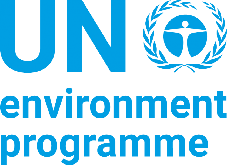Washington, DC believes that everyone has the right to breathe clean air, and is committed to addressing the related public health threats of air pollution and climate change.
To address these sister crises, the District has set ambitious targets on transportation electrification and building efficiency standards through Clean Energy DC and continues its work to expand solar power for low-to-moderate-income families through the Solar for All program.
In the District, 25% of fine particulate matter emissions are from on-road diesel vehicles, the vast majority of which are medium and heavy-duty vehicles. On-road diesel vehicles also contribute 15% of ozone on code orange days, a category second only to non-road equipment. These pollutants contribute to asthma attacks, other respiratory and cardiovascular illnesses, and can cause premature death.
“On the first International Day of Clean Air for blue skies, Washington, DC is proud to stand with cities around the world equally committed to building a cleaner, healthier, and more sustainable planet today and for generations to come,” said Mayor Muriel Bowser.
“Here in Washington, DC, we recognize that only by focusing on environmental justice and the disproportionate impact that pollution has on communities of color can we build a fairer and more just nation and world. So we will continue to set ambitious sustainability goals, advance our Clean Energy DC plan, and expand access to our Solar For All program. Because we know: by thinking globally and acting locally, cities around the world have the power to fight climate change and build a more resilient future.”
To cut air pollution, the District recently joined 15 other states to form a multi-state coalition to accelerate the electrification of medium- and heavy-duty vehicles, most of which run on diesel. The District also leads the nation when it comes to engine idling policies and enforcement. A recent major enforcement action against idling buses led to a $125,000 penalty and required the Greyhound bus company to change its idling policies nationwide. The District uses state-of-the-art thermal imaging cameras to provide clearer evidence of idling and residents can submit evidence of idling through the DC 311app.
By accelerating the implementation of zero-emission vehicles in the District, reducing energy consumption, enforcing anti-idling laws, and expanding sustainability energy, Washington DC is reducing climate-causing greenhouse gases while also decreasing air pollutants that harm health. Air pollution and the climate crisis go hand-in-hand, and the District is committed to working with our community to implement effective and swift action on both of these public health threats.
Washington DC is a signatory to the C40 Clean Air Cities Declaration.
This story was submitted by the Department of Energy and Environment, Washington D.C. Non-UNEP stories highlighted here have been communicated to the United Nations Environment Programme (UNEP) by external partners in support of the International Day of Clean Air for blue skies and are shared here as a courtesy. UNEP is not responsible for the content. Inclusion here is not meant to be construed as an endorsement of the stories or the content therein.
